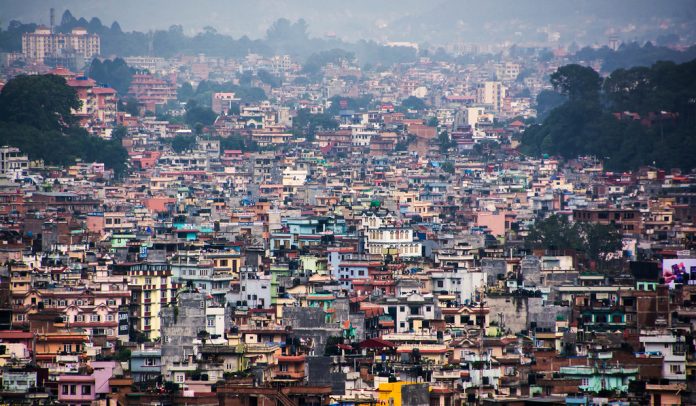
“I couldn't eat properly and my mind was constantly racing. It made me feel very powerless and helpless. I felt a deep guilt that I'm safe and distant while so many people are risking everything and fighting for something that wasn't even extravagant or radical,” Riya Pokhrel ‘27 shared.
In September, a wave of protests led by Nepalese youth swept across the country against Prime Minister K. P. Sharma Oli. Already frustrated with high levels of corruption and rampant unemployment, citizens reached a tipping point when the government blocked access to 26 social media platforms, including Facebook, X and YouTube. The move was officially attributed to regulatory noncompliance but was widely seen as an attempt to curb growing dissent and online anti-corruption campaigns.
While peaceful protests began on Sept. 8 in Kathmandu, the situation escalated after security forces used live ammunition on demonstrators. It turned especially violent as this deadly crackdown fueled further outrage, leading to mobs setting fire to government buildings, including the federal parliament, Supreme Court and prime minister's residence, on Sept. 9. The Nepali Army was deployed to enforce a curfew and restore order.
Prime Minister Oli resigned on Sept. 9, the ban on social media was lifted and Former Supreme Court Chief Justice Sushila Karki was appointed as interim prime minister on Sept. 12, becoming Nepal's first female head of government. While Karki has dissolved the parliament and set a date for new elections for Mar. 5, 2026, democratic infrastructure may take years to rebuild.
In these trying times for the country, a number of Nepalese DePauw students worry about the future of their motherland, with their family and friends in it. Aanya Tamrakar ‘28 voiced her restlessness during the ordeal, “The first thing that came into my mind was my family. I panicked as I saw the news and I felt really helpless.” Since the government had curbed social media and the internet, it was also extremely difficult for students to communicate with their family members. Astitwa Wagle ‘26 shared, “There was a lot of content on social media for three days, and that was really scary. At times it was helpful, but after that it became a pool of misinformation.” On campus, students had a collective sentiment. They were all struck weary by the news.
It’s not just current DePauw students who were concerned about the situation. Speaking from Nepal, recent graduate Karan Mahato ’25 also shared his perspective, “It just started as a protest against corruption. But because of the mass killings by the police ordered by the Prime Minister, Home Minister and Chief District Officer (CDO), it changed into a complete revolution by the next morning.”
DePauw faculty shared similar insights. Professor Sunil Sahu explained the situation succinctly. He said, “When the Nepalese government imposed a temporary ban on social media, it created difficulties for Nepalese students studying in the U.S. and other countries to stay in touch with their families and to stay updated about the ongoing crisis. The outrage among young people, especially Gen Z, was triggered by the government’s decision to suspend 26 social media outlets.” Sahu explained that the youth reacted strongly to systemic corruption in government. In particular, the protests reflected a backlash against “nepo kids”––individuals who benefit from generational wealth and political connections—and a strong reaction to the lack of economic opportunities available to them.
Ellie Harris, Assistant Director of International Student Affairs, shared, “It’s important to remember that all students are affected by these situations differently, and all students from a particular country or region may not agree about what they need. The best thing you can do for a student you are worried about in any situation is to be a good friend.” Furthermore, she explained that the International Student Affairs (ISA) stays up-to-date on world news and notify students when they identify the need for broader support. “No matter what is happening on campus or in the world, Beth and I are always here to answer questions and support students however we can,” she said.
For Nepalese students at DePauw, the protests are not just headlines. They shape their sense of identity and connection to home. While the appointment of Sushila Karki as interim prime minister signals a new chapter, the path ahead remains uncertain. But there is hope among young Nepalese that their generation’s courage and resilience will not only demand accountability now but also nurture the beginnings of a more democratic future.
